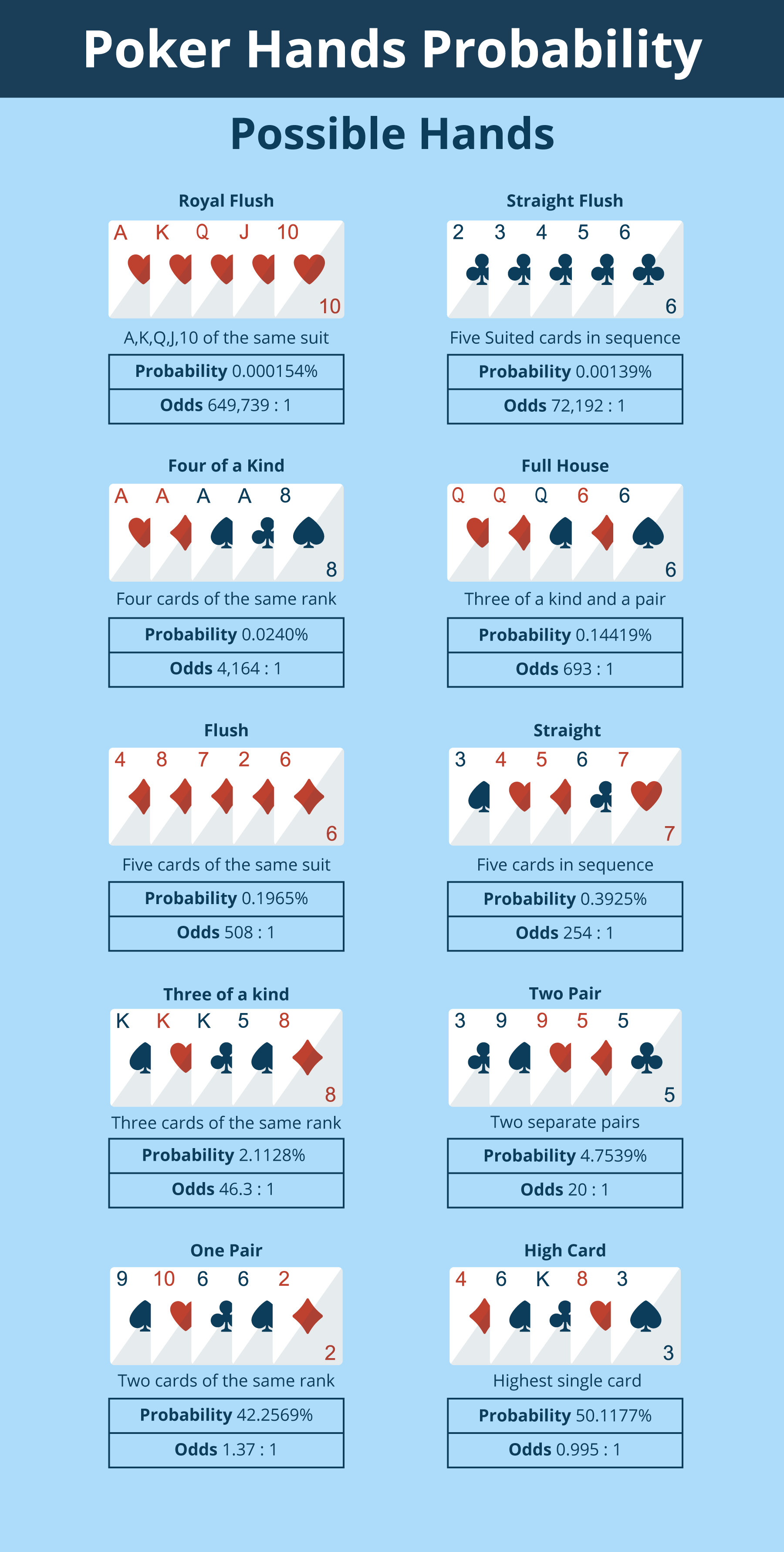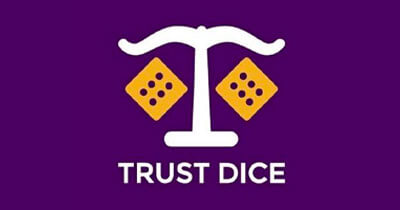What will you learn from our Poker strategy guide?
In this poker strategy guide, we’ll take you through the ins and outs of the game and how you can use our poker strategy tips to play your best game of poker.
Following even a basic poker strategy will help you keep track of your betting, plan your plays, and improve your chances of collecting a winning combo of cards.
6 important tips before you start
If you’re considering getting started in the game of poker, here are some crucial tips to implement before you play a game:
- Get to know all the rules, odds, bets and payouts
Before you can effectively play any game, you need to understand how it works. By learning the rules, odds, bets, and payouts beforehand, you’ll have the knowledge you need to follow the gameplay.
- Choose a Poker variant smartly
Choosing your poker variant is an important step in playing the game successfully. You’ll need to see which variant suits your playing and betting style and which offers you the best odds of winning.
- Plan your budget – how much are you prepared to win or lose
Knowing how much you have to spend and not going over your budget can mean the difference between having an enjoyable, longstanding hobby or running through your bank and not having funds to play.
- Don’t forget about the time you’re willing to spend on a game
Gambling should always be a fun pastime and managing your time responsibly is important to avoid developing unhealthy habits. Allotting a certain amount of time to your hobby in advance and sticking to it is always a good idea.
- Take your position into account
Your position at the table affects the way you play your hand. Where you’re sitting in relation to the dealer determines when you get to bet and how many people will bet before and after you.
- Learn the lingo
You wouldn’t go to a foreign country without knowing at least some of the basic expressions, so too, you shouldn’t sit down at a poker table without a basic understanding of the terminology. Ante, flop, blind, river and turn are just some of the key terms in the game that you’ll need to understand to play.
Basic Poker strategy
The objective of a poker game is to present the most valuable hand possible and beat out your opponents. But what happens if you are not dealt a very strong hand?
Not only are there ways to identify and build a strong hand, but there are also betting strategies that will exude confidence in your hand and help reveal how strong your opponents’ hands are.

Which playing styles are there?
There are four basic poker playing styles to play your poker hands. You can choose to use just one or use a combination of all four. Whichever you use, make sure that you have grasped each style before incorporating it into your play arsenal.
Mixing up your styles will keep your gameplay unpredictable and make it difficult for opponents to read you.
- Tight
Playing tight means being selective about the hands you choose to play and only playing hands that offer a good chance of winning from a decent position. This style makes it easy to read your plays as it’s a fairly good bet that you’re holding decent cards if you’re playing the hand.
- Loose
Loose play is the exact opposite of tight play, where you play every hand that comes your way from any position, regardless of the strength of the cards. This style makes it difficult to predict your hand but can also lead to unnecessary losses.
- Aggressive
Playing aggressively will see you actively raising and re-raising in a show of strength. This style can intimidate other players into believing your hand is very strong even if it isn’t and may cause them to fold a potentially winning hand.
- Passive
Playing passively will see you following other players’ leads, calling and folding rather than betting and raising.
When to raise?
There are a few reasons you might want to raise; the key is to know why you are doing it and what you’ll gain from it. Here are a few instances of when to raise and why:
- If you are holding a very strong hand and want to build the pot to increase your potential winnings.
- If you have a weak hand and want to bluff to make it seem stronger.
- If you are looking to gather intel about other players’ hands – how they react to your raise can reveal a lot about the strength of their hands.
When to call?
Sometimes referred to as “seeing”, calling matches a bet or a raise in a game of poker and ensures that every player has bet the same amount in the round before moving on to the next. Calling takes you through to the next round of play without adding any more risk than is necessary.
Whether you have a fantastic hand, a good enough hand to draw, or if you want to bluff later in the game, then calling will keep you in the game.
Understanding the pot odds
The pot odds measure the financial risk of staying in the hand by calling versus the size of the pot you could potentially win.
To calculate your pot odds, you add the call amount to the pot and divide that total by the cost of the call.
If the pot stands at NZ$90, and you need to bet NZ$10 to call, your odds calculation will look something like this:
- Pot + Call bet: NZ$90+NZ$10 = NZ$100
- Total/ Call bet: NZ$100/NZ$10 = 100 / 10 or 10:1
So your risk vs. reward of staying in the game is a 10:1 payout.
The psychological aspect – Playing the player
Playing poker is as much about playing the other players as playing the hand you are dealt. Learning to read a player’s behaviour to identify when they are bluffing or have a strong hand is as important as knowing the strength of your own.
Once you know your opponents’ strengths and weaknesses, you can use them to your advantage and use your plays to force their hand.
Advanced Poker strategy
Once you have mastered the basic poker strategies, you can move on to more advanced play, which will take your game from simple hobby-level play to holding your own on the higher stakes tables.
Advanced poker strategy includes concepts like learning to read a player’s plays, how to respond to a raise, when to show your hand and how to force a fold.
What is bluffing?
You’ve seen it in the movies; the hero is sitting on a terrible hand yet somehow manages to convince the other players that his cards are so strong that they all fold and leave him with the pot. That is the art of bluffing: using your playing style and attitude to make your hand appear better than it is.
How to become good at deception?
If you aren’t comfortable with deception but want to become a great poker player, you’ll need to improve those skills. Check out our tips to perfect your bluff:
- Consider your competition: Watch your opponent carefully to pick up on their style of play and how they react in certain situations. Almost every player has a weak spot that you can exploit to create an opportunity for a bluff.
- The size of your bet: Bluffing can be risky and lead to losses if your bluff gets called. Bluffing with bets that are too small won’t result in many folds, and bluffing too big may give the bluff away and result in a call. You need to find the sweet spot that works for you, which will involve some trial and error in the beginning.
- Learn to gauge your hand from an opponent’s perspective: You need to be able to imagine how your hand appears to your opponent so that you can make a play that makes sense to them. If your play doesn’t back up the idea of a strong hand, then then your bluff will be exposed.
What is GTO
GTO or Game Theory Optimal is a poker strategy that’s goal is to make your poker play unexploitable. GTO aims to improve your win rate by mixing up your gameplay, not repeating a specific play too often or not often enough and playing a well-balanced game. You need to be unpredictable and unreadable to your opponent.
How to master GTO
- Mix your strategies to keep opponents guessing what your next play might be.
- Balance your range to avoid being read. This involves not betting the same hand in the same way consistently – If you always bet on a pair but check on anything less, you are giving your opponents information to exploit.
- Understand your opponents range by watching and taking note of their plays. Once you understand how your opponent plays, you can pick up on deviations to take advantage of.
- Learn the poker hands and how you would play in every instance to either action those plays or avoid them to create confusion in your opponent.
Hand reading
Hand reading or range reading is an essential skill to develop to master the game of poker. Whether you are doing it consciously or not, in a game of poker, you are always trying to determine whether your adversary has a stronger hand or not; that’s because the objective of the game is to have the winning hand.
If you can successfully read their hand, you can decide how to play yours, whether it is strong or not.
Tells
Whether they’d like to admit it or not, most poker players have tells, small, almost imperceptible actions that reveal their position. In face-to-face poker, they could be physical actions when sitting on a good hand or under stress. In a game of online poker, subtle changes in gameplay and betting behaviour might give them away. Beware of putting too much stock in tells – they can also be deliberate to deceive the competition.
Levelling
Levelling or multi-level thinking is the ability to think beyond just the cards in your hand and evaluate a situation based on perceiving the game from every angle.
Instead of just thinking about how strong your cards are, consider how strong your opponent might think they are, how strong they think you think your cards are, how strong they think you think they think your cards are, and so forth.
Which Poker strategy should you choose?
Certain strategies work best for certain types of players. For example, you wouldn’t use an aggressive strategy with lots of bluffing if you hadn’t yet mastered the bluff. Choose your strategy based on your skill level and adjust it as you grow in the game.
The best strategies to try when you’re new to casino
- Play a tight game style – this will avoid unnecessary losses while you are still getting the hang of the game.
- Avoid too much bluffing – first, learn to play the hand you have well before trying to convince other players that they are better than they are; good bluffs need to be backed by knowledge.
- Know your hand value so you can decide when to bet and when to call.
- Start with the lower limit games to hone your skills rather than jumping into high stakes games.
Poker strategies to play if you’re a pro
- Switch up your playing style often to keep your game unreadable.
- Read your opponent’s range by paying attention to his playing style and then play the player.
- Determine how to respond to a raise by evaluating your hand, others’ responses, your position, pot odds, and the aggressiveness of the raise.
- Avoid showing your hand unless you must. Showing your cards unnecessarily gives other players valuable insights into how you play.
Video poker strategy
- Only play with money you can afford to lose as a video poker strategy.
- Play the maximum bet to qualify to win the progressive jackpot if you can afford it.
- Stick to games like Jacks or Better that offer the best odds for video poker strategy.
- Play the games that offer progressives.
Poker tournament strategy
- Start with a conservative playing style – you won’t win the tournament in the early rounds, but you can run through your bank and bow out with no chips.
- Patience is key when there is a large field of players to get through, don’t blow your stack by trying to peak too early.
- Look after your stack – you’ll need it in the final stages of the tournament.
- Use GTO to mix up your play and make yourself unpredictable.
Poker strategies that got the most wins
Today, one of the top players in live poker tournaments is Daniel Negreanu, who has earned nearly $40 Million in poker tournament winnings. His best strategy for winning involves ICM (Independent Chip Model), which allows you to determine how profitable a game decision will be in terms of cash rather than chip value.
General beginner mistakes to easily avoid
Poker is fast-paced and entertaining and makes a fantastic pastime if you can avoid potential pitfalls. Rookie mistakes are easy to make but just as easy to avoid if you use simple strategies.
Always play within your means, monitor how long you spend playing, don’t bluff too much while still learning and avoid playing every hand the same way. Most importantly, have fun!





